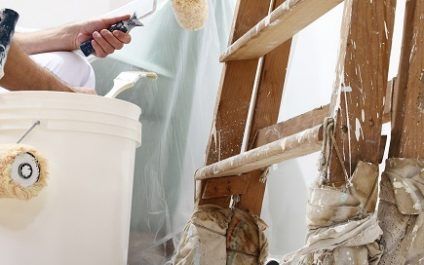What Goes into the Cost of a Paint Job

Labor
While many ‘contractors’ have painters that work for them, not all painters are paid equally, and not all contractors pay the appropriate insurances and taxes. Painting contractors in all sectors are notorious for paying their help either ‘under the table’ or as 1099 subcontractors. This latter arrangement most always violates simple IRS rules stipulating who is, and who is not, an independent contractor. Reputable commercial contractors treat their painters as employees, pay a fair and competitive wage, and pay all appropriate insurances (liability, worker’s compensation, unemployment) and taxes (FICA). These additional costs are typically referred to as the labor burden, and can include health and dental insurance, plus contributions to retirement plans—all of which support those committed to the professional trades.
In summary, a viable commercial contractor pays his help well and covers all required insurances and taxes.
Materials
While it can vary, materials typically constitute about 15%-20% of the overall cost of the job. Paint products are available in various price ranges. Some can be very cheap, while others are extremely expensive. A good commercial contractor will avoid poor, unsatisfactory materials and use paints suitable for the substrates being painted. With most major brands, there are commercial lines that are appropriate for the usual commercial property. These are best suited for the conditions typical to commercial settings.
Overhead & Profit
Where non-professional painting contractors will work for wages, viable firms know that to stay in business they must cover their non-production costs and make a profit. So once labor and material costs have been tabulated, the commercial contractor will add an amount that exceeds the hard costs of the project. Profits go toward the purchase of equipment and machinery, provide for operating expenses, plus accruing cash on hand for the unforeseen and often, inevitable downturns in the market.
T. L. Hart, Inc. is in its 36th year and has built its company around sound business principles and practices. When providing a quote for painting or related work, you can be assured that the conditions and needs of your commercial property have been assessed, and a fair and reasonable proposal is offered you. Call us today to get a free estimate. We are currently booking work for 4th quarter 2020 and 1st quarter 2021.
Do you need painting advice?
Ready to take the first step? Get a free, detailed estimate for your painting project today! Customer satisfaction is our number one priority, and we're ready to get to work for you! Click on the button down below and request a free quote.









